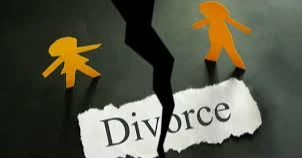Divorce is no longer a rarity in Bangladesh as the rate of marital breakdowns has seen a sharp increase in recent years, with domestic violence, dowry demands, and extramarital affairs emerging as the primary reasons behind the growing numbers.
A closer look at real-life cases and expert opinions sheds light on the deep-seated issues leading to broken families.
Scars of Domestic Violence
Neha (not her real name), 28, once envisioned a happy life after marrying into a wealthy family in Gulshan.
The early years of the marriage were peaceful, but as time passed, the reality became harsh.
"I used to work in an English medium school. My family is also well-off. But my father-in-law told me I didn’t need a job because money wasn’t an issue. My husband was involved in business, which meant late nights and frequent drinking. He would lash out at me over the smallest issues. At first, I stayed quiet, thinking things would change," Neha shared.
The abuse escalated until it reached an unbearable level. She finally decided to leave but refrained from filing a case. “It took me a long time to gather the courage, but I knew I deserved better.”
Neha’s story is not unique. Domestic violence remains a leading cause of divorce, often leaving women physically and emotionally shattered.
Burden of Dowry
While the practice of dowry is legally prohibited, it continues to be a social curse. Many women find themselves trapped in marriages where their in-laws treat them as mere financial assets.
Sohana (not her real name), 26, recalls the relentless demands from her in-laws despite her father providing Tk 6 lakh and gold jewellery during her wedding.
“They took the money for furniture but returned within 15 days, demanding more for a television and refrigerator. My parents had already given everything they could. But my husband pressured me, saying that if I couldn’t arrange more money, he would throw me out,” she said.
Single Mothers in Dhaka: Navigating life amid rising divorce rates
Verbal abuses soon turned into physical violence. Eventually, she chose to leave and is now searching for a job. “I come from a middle-class family. I was not interested in working before, but now I have no choice.”
Extramarital Affairs: The Breaking Point
Trust is the foundation of any marriage, and when it is broken, relationships crumble.
Many divorces today stem from extramarital affairs, which are becoming increasingly common among both men and women.
Sonia (not her real name), 25, found herself abandoned when she was most vulnerable—during pregnancy.
“When I was expecting, I moved to my mother’s house for care. That’s when I learned my husband was seeing other women. At first, he denied it, but when I confronted him with proof, he didn’t even try to hide it anymore. He told me to leave,” she recounted.
Sonia, who comes from an affluent background, initially stayed silent. However, when her husband refused to take any financial responsibility, she took legal action.
Men, too, are victims of betrayal. Kabir (not his real name), 42, had to end his marriage when he discovered his wife was involved with someone else.
“She changed completely after our second child was born. I noticed her staying up late, lying about her whereabouts, and constantly chatting with someone. I followed her for days until I had undeniable proof,” Kabir said.
Actress Mahiya Mahi to get divorce
The discovery left him devastated. “I never thought about myself—I only thought about my children. I took responsibility for my daughter, but my son had to go with his mother. He is only four, and it breaks my heart.”
Expert Analysis: A Growing Crisis
Barrister Shubhra Chowdhury, a Supreme Court lawyer and human rights activist, has witnessed an alarming rise in divorce cases.
“In most cases, we see verbal abuse, domestic violence, and extramarital affairs leading to separation. Lately, infidelity is becoming more common among both men and women. This has resulted in extreme consequences, including murders, rapes, and even suicides,” she said.
She advises that when a marriage becomes toxic, it is better to leave than to engage in criminal acts. “If a relationship becomes unbearable, the best legal and moral course is to walk away instead of resorting to violence.”
Law Enforcement’s Perspective
Raju Ahmed, an inspector at Hatirjheel Police Station, previously served in Gulshan, where domestic violence cases were frequent.
“Many cases go unreported. In certain areas, people drink and party at night, then return home and physically abuse their wives. However, not all victims come forward,” he said.
Legal Protection and Implementation
Divorce, though a legal right, often comes with stigma, particularly for women. While laws exist to protect victims, their enforcement remains inconsistent.
Sania Mirza’s Family Confirms Her Divorce from Shoaib Malik
Barrister Chowdhury emphasised the need for stronger implementation of laws. “Laws alone are not enough. Unless they are properly enforced, domestic abuse and dowry-related violence will continue to destroy lives.”
Unspoken Toll
Beyond the legal and financial struggles, divorce takes a heavy emotional toll on those involved, especially children. The trauma of a broken home can last a lifetime, shaping the way individuals view relationships and trust.
As divorce rates continue to rise, it is imperative to address the root causes—domestic violence, financial exploitation, and infidelity—through awareness, legal support, and societal change. After all, a healthy society begins with strong, respectful relationships.
